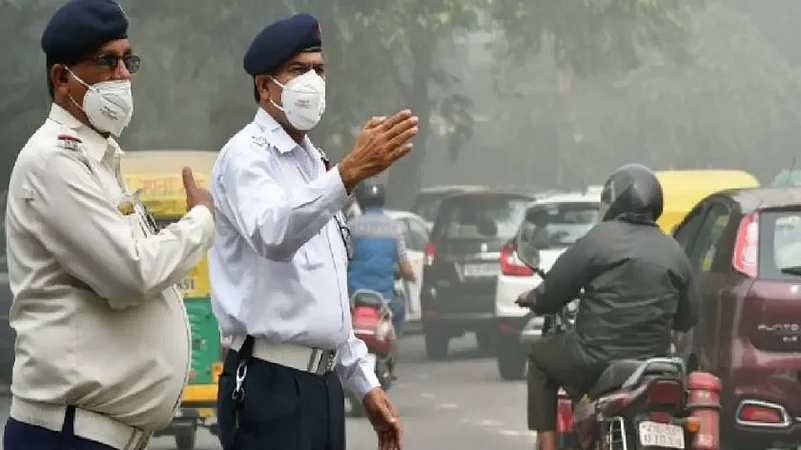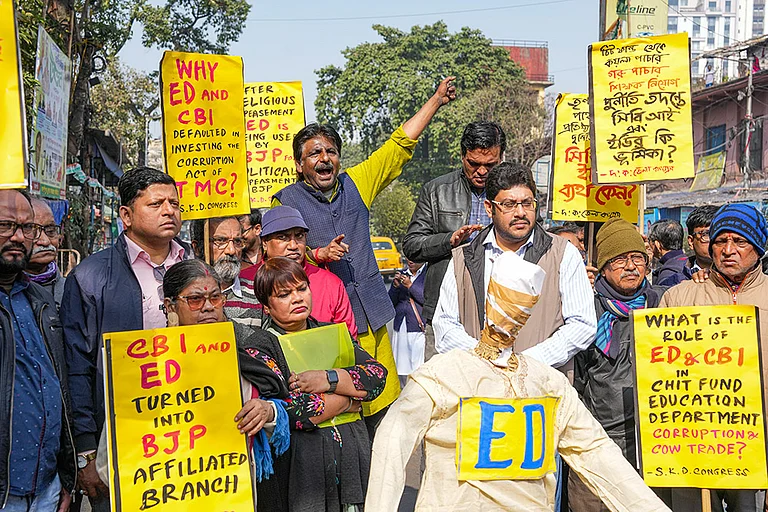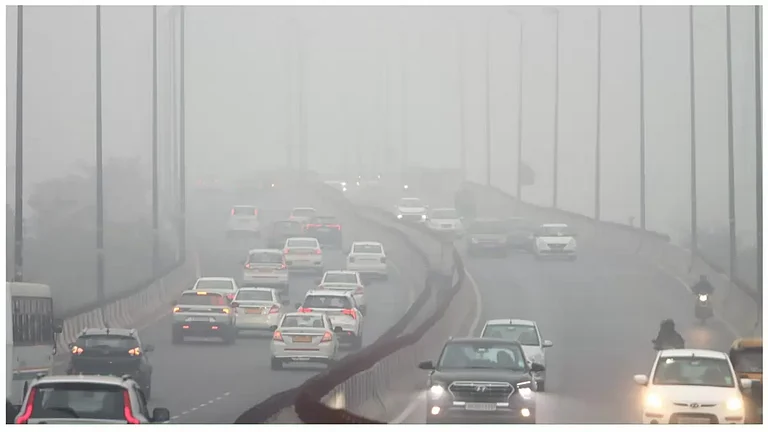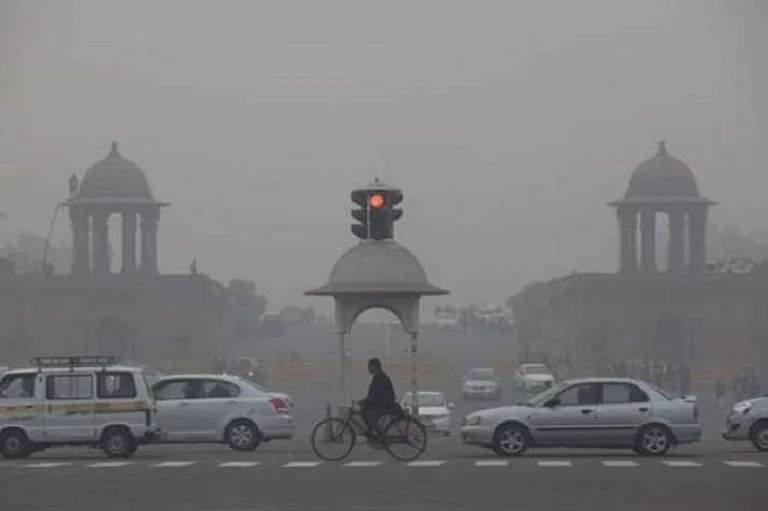
Between October 14 and November 18, the Delhi Traffic Police issued fines amounting to more than ₹84.98 crore for violations related to Pollution Under Control (PUC) certificates.
According to PTI, this reflects 84,981 challans, each carrying a penalty of ₹10,000.
The department also recorded 446 challans tied to uncovered construction and demolition waste.
Between October 14 and November 18, the Delhi Traffic Police issued fines amounting to more than ₹84.98 crore for violations related to Pollution Under Control (PUC) certificates during the first two stages of the Graded Response Action Plan (GRAP), officials said.
According to PTI, this reflects 84,981 challans, each carrying a penalty of ₹10,000.
The Western Range recorded the highest number of PUC violations with 22,867 challans, followed by 20,554 in the Southern Range and 13,423 in the New Delhi Range. The Eastern Range issued 12,441, the Northern Range 10,211, and the Central Range 5,485 challans.
As per official jurisdiction details, the Eastern Range includes East Delhi, North East Delhi and Shahdara, while the New Delhi Range covers New Delhi along with parts of South West Delhi. North Delhi and Central Delhi fall under the Central Range, the Northern Range covers Rohini, Outer North and North West Delhi, the Western Range covers West Delhi, Dwarka and Outer Delhi, and the Southern Range includes South Delhi and other South West Delhi areas.
In addition, the police issued 2,030 challans for visibly polluting vehicles. Of these, 1,197 came from the Southern Range, 751 from the Western Range, and 82 from the New Delhi Range. “The Eastern, Central and Northern Ranges recorded none. Most visibly polluting vehicles were heavy carriers passing through the southern and western parts of the city,” the data stated. During this period, only one overage vehicle was impounded, in the Southern Range.
The department also recorded 446 challans tied to uncovered construction and demolition waste. The Southern Range accounted for 257, followed by the Western Range with 126, the Eastern Range with 27, the Northern Range with 19, and the New Delhi Range with 17. The Central Range logged no such violations.
To reduce pollution from transit vehicles, the police diverted 4,708 non-destined trucks—vehicles not meant to enter Delhi—via the Eastern and Western Peripheral Expressways. These diversions included 1,980 trucks in the Western Range, 1,722 in the Southern Range, 641 in the Northern Range, 266 in the Eastern Range, and 99 in the New Delhi Range, while the Central Range recorded none.
“Traffic units have been instructed to stay alert at all borders and internal junctions so pollution-related movement can be controlled effectively,” a senior officer said.
During the same period, traffic police also decongested 703 busy points, with 392 in the Southern Range, 303 in the Western Range, five in the Eastern Range, and three in the Northern Range. No congestion issues were noted in the New Delhi and Central Ranges.
Under GRAP checks, authorities examined 5,910 inter-state buses at Delhi’s borders. The Eastern Range conducted 2,164 of these inspections, the Western Range 1,285, the Southern Range 1,205, the New Delhi Range 945, and the Northern Range 311. The Central Range carried out none.
Out of these vehicles, 5,538 inter-state buses were cleared to enter the city, including 2,005 in the Eastern Range, 1,258 in the Western Range, 1,046 in the Southern Range, 926 in the New Delhi Range, and 303 in the Northern Range.
Police stopped 442 inter-state buses for not complying with GRAP norms. These included 159 each in the Eastern and Southern Ranges, 89 in the New Delhi Range, 27 in the Western Range, and eight in the Northern Range.
GRAP, activated when air pollution rises to critical thresholds, operates across four escalating categories. Stage One corresponds to “poor” air quality, Stage Two to “very poor,” Stage Three to “severe,” and Stage Four to “severe plus,” based on Delhi-NCR’s Air Quality Index.
Measures under Stages One and Two include mechanical sweeping, water sprinkling, stricter checks on diesel generator sets, higher parking fees, and advisories urging the public to use mass transit and reduce dust-generating activities.
Stage Three halts construction and demolition work, restricts non-CNG and non-electric inter-state buses, bars BS-III petrol and BS-IV diesel cars, and increases Metro services. Under Stage Four, authorities block non-essential truck entry, shut schools up to Class 10, cap office attendance, restrict diesel goods vehicles below BS-VI standards and allow only essential movement into the city.
The senior officer noted that the force remains “fully alert across all ranges and will continue strong enforcement of GRAP restrictions so that traffic remains smooth and pollution sources are reduced through the winter season.”
With PTI inputs



























